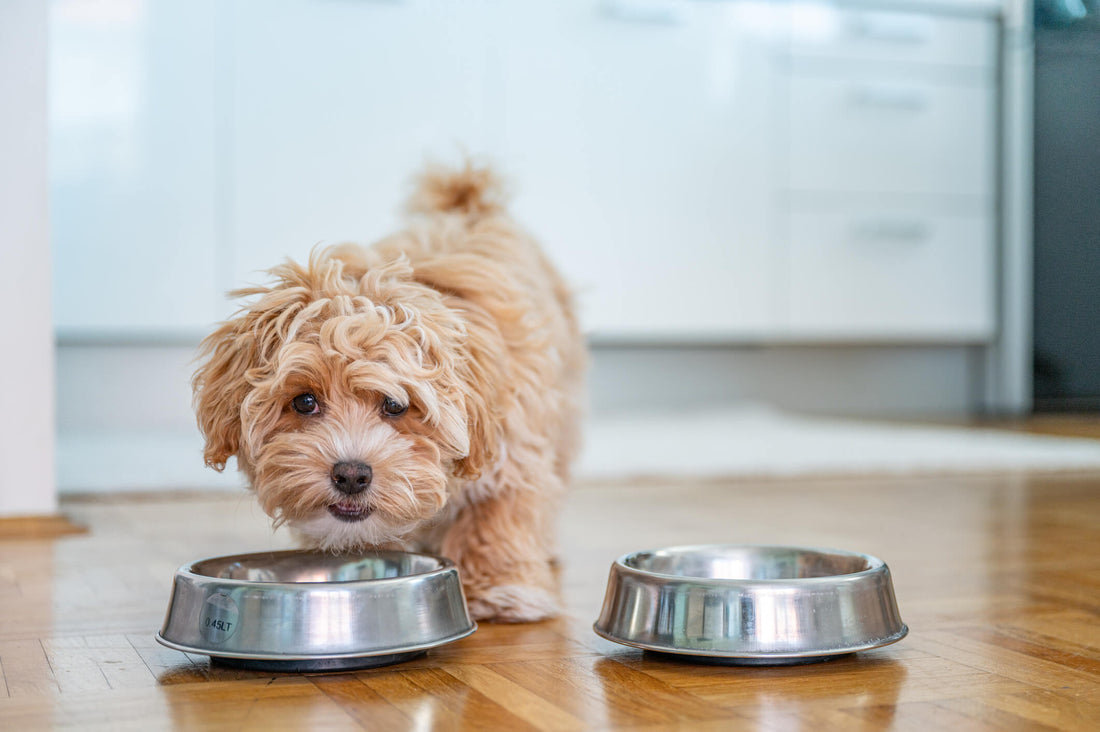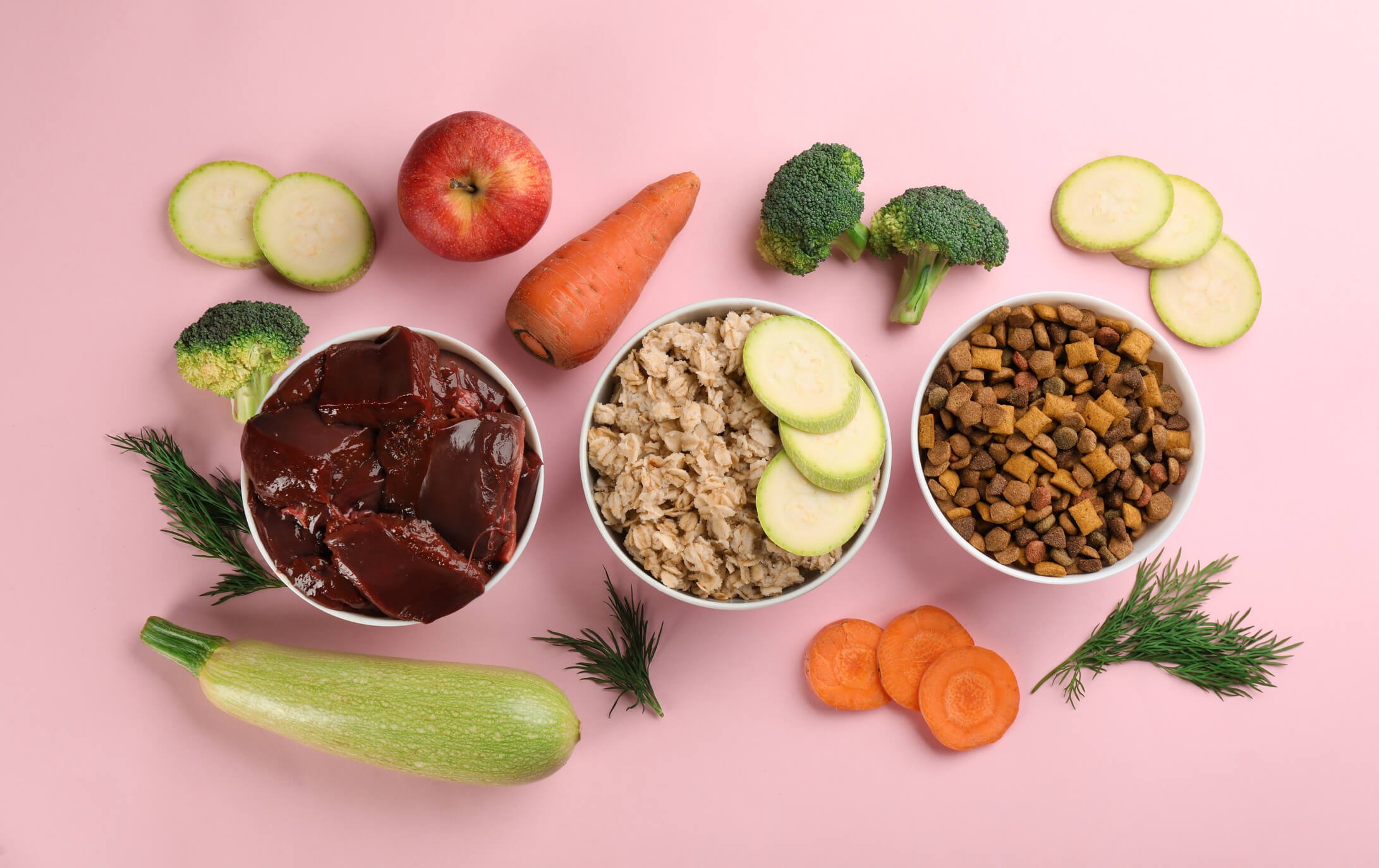
Healthy Dog Digestion 101
There comes a day when every pet parent finds a runny poop in the backyard. A dog’s digestive system is very sensitive, and the smallest bite of grass or table scrap can lead to an upset stomach—not to mention a mess for you to clean up!
While vomiting and diarrhea are common among dogs, your furry companion would be a lot happier if they had as few encounters with these symptoms as possible. Learn about these effective, all-natural ways to promote good digestive health in your dog.
Add probiotics and prebiotics to their diet
The first step toward a healthier digestive system involves feeding your dog probiotics and prebiotics. Probiotics are beneficial bacteria that restore balance to the gut microbiome. A wide range of good bacteria can keep bad bacteria to a minimum, reducing the risk of skin problems, intestinal upset and bacterial infections. Feed your dog a daily probiotic supplement or incorporate probiotic foods like fermented vegetables and unsweetened, water-based kefir into their meals.
Prebiotics are the food source for these good bacteria. While probiotics add good bacteria to your dog’s gut, prebiotics support your dog’s natural ability to grow their own good bacteria. Look for a supplement that contains both probiotics and prebiotics to achieve the maximum benefits. Some dog-friendly foods are also rich in prebiotics, such as bananas and dandelion greens.
Build exercise into their daily routine
Exercise plays an important role in your dog’s digestive system. Daily physical activity keeps their digestive tract moving along at a regular cadence. A consistent exercise schedule can help regulate your dog’s bowel movements, which reduces constipation, bloating and other symptoms of digestive upset. Good activities to try include long walks, play sessions and trips to the dog park. The type of exercise doesn’t matter as long as your pup is staying active.
Exercise also helps your dog use nutrients more efficiently. Dogs use energy when they move around, which increases the need for protein, fat and carbs. The small intestine breaks down these nutrients before they’re absorbed into the bloodstream. Exercise regulates the digestive system by improving nutrient absorption and guiding waste out of the body.
Minimize stress in anxious dogs
Bouts of stress and anxiety often lead to vomiting and diarrhea in dogs. Part of this is due to the gut-brain axis, which means their brain and gut health are closely linked to each other. Improving your pup’s emotional wellbeing can have a positive impact on their digestive health.
Pet parents have many options for reducing stress in anxious dogs. Compression jackets are great during fireworks, storms and traveling; the gentle pressure creates a sense of comfort and security. Pheromone collars, plugins and sprays also work for stressful situations because they mimic the scent of a nursing mother dog. You can also try administering a calming supplement prior to stressful events.

Limit grains and feed high-quality protein
A dog’s digestive system is capable of converting grains into energy. However, pet parents should avoid feeding their dogs a diet that’s high in carbohydrates. The small intestine turns these grains into glucose, and large amounts of glucose can lead to chronic inflammation. Inflammation is the root cause of inflammatory bowel disease (IBD) and leaky gut syndrome. Instead, feed your dog a whole-food diet of fruits, vegetables and proteins, or look for commercial food made without grain fillers.
Protein should be a dog’s main source of energy. But the type of protein matters, too. Support your furry friend’s digestive health by feeding them lean, high-quality proteins. Choose proteins that are low in fat to avoid excessive weight gain and chronic inflammation. Good low-fat options include chicken, turkey, salmon and whitefish.
Avoid certain medications when possible
Antibiotics are an effective treatment against bacterial infections. Unfortunately, this medication doesn’t just kill bad bacteria—it kills the good kinds, too. This can throw the gut microbiome out of balance and trigger recurring diarrhea or vomiting in your dog. If you have to give your dog an antibiotic, feed them a daily probiotic supplement to replace the good bacteria.
Non-steroidal anti-inflammatories (NSAIDs) may also contribute to digestive problems. While NSAIDs are designed to reduce pain and inflammation, the medication has been linked to some cases of leaky gut syndrome, which is an inflammatory disease. Limit the use of NSAIDs by exploring natural pain relief and anti-inflammatory remedies like herbs, acupuncture and massage.
Every dog will experience an upset stomach at some point in their life. In some cases, a dog may develop recurring symptoms due to a digestive disease. These tips can put your dog’s digestive health back on track, whether they have a lifelong disease or merely ate something questionable.


